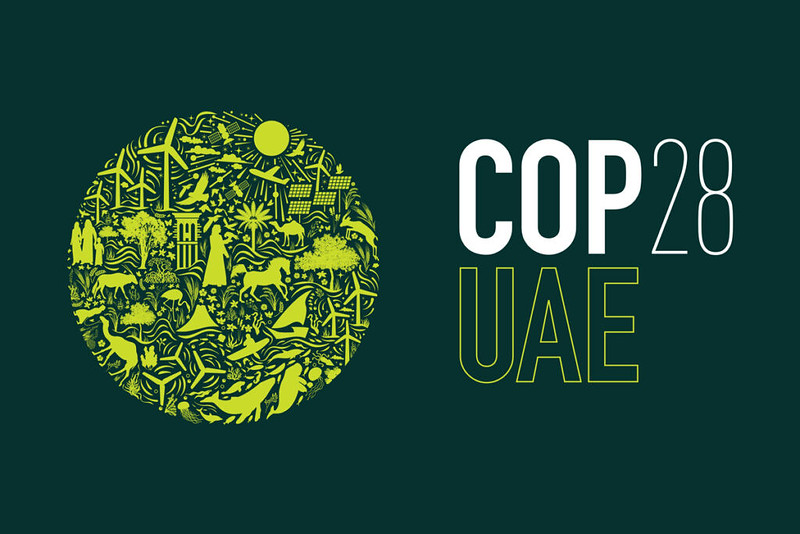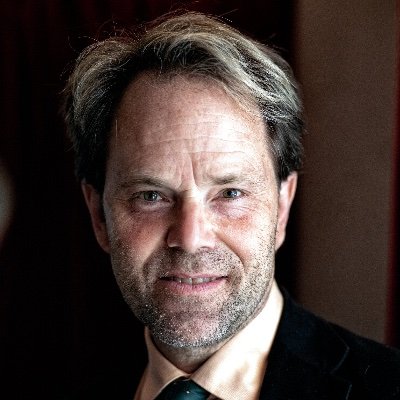Attempts to put a brave face on COP28 won’t wash: the COP’s won’t work, they just make things worse.
Dr. Rupert Read is the author of Extinction Rebellion: Insights from the Inside (Simplicity Press) and co-editor of The Climate Majority Project (forthcoming with London Publishing Partnership).

So the endgame of Cop28 has ended. What did we get?
The much-vaunted highlight is a text which actually states the obvious. Which, admittedly, has never happened before.
The real danger of the way CoP28 ended with a ‘positive’ outcome is that it makes it seem as if something has been achieved. Whereas all that has been achieved, after 28 years, is a toothless statement of the obvious basic truth that we need to transition away from fossil fuels.
So the size of it is that it’s only taken delegates 28 years to actually mention the source and scale of the much-more-than-problem.
Well whoop-y-doop. At that rate, by 2051 maybe they will agree a (non-binding) pledge to phase out fossil fuels…
My great colleague Bill McKibben famously says that winning slowly on climate is the same as losing. Well, this sure is the quintessence of SLOWLY!
What of substance, that actually means something, has come out of this CoP? In a word, nothing. Only a few more unbelievable, unenforceable voluntary pledges. (There was that early success on loss and damage – but even that achievement melts almost into thin air when one actually scrutinises it.)
Should I be kinder to this agreement? After all, there is, famously, some reasonably decent novel language in the agreement they managed to reach at CoP28, language that speaks of “transitioning away from fossil fuels in energy systems”. Good. But look closer: “in energy systems”. What do they mean by this slightly odd, rarely used phrase? It is not interpreted in the agreement. Which in this crucial sense is therefore deliberately ambiguous.
One plausible interpretation – the one that will surely be in the minds of the likes of Sultan Jaber – is that they mean power (I.e. power-stations) and heat (as in for instance combined heat-and-power plants, or home-heating). I.e. “Energy systems” may mean basically the generation of electricity and of heating. So let’s be clear: CoP28 did NOT necessarily even ‘call on’ countries to transition away from fossil fuels. (This helps make sense of why the deal actually reached is not equivalent to what plenty of countries at CoP tragically rejected: a phase out of fossil fuels.)
What is clear is only that they called on countries to transition away from fossil fuels in the generation of electricity and of heat for heating purposes and the like. (This worrying interpretation helps explain the otherwise-odd way in which the key part of the agreement is constructed: talking about achieving full transition in ‘energy-systems’ and then going on to speak about having more EVs etc, without asserting that there must be a full transition away from petrol cars etc.)
CoP28 did not necessarily ‘call on’ countries to transition fully away from fossil fuels in their use in transportation, and certainly did not call on them to complete such a transition in heavy industry (eg chemicals or steel production, or plastics) or in the food system. What is certain is only that the transition it declared should in its view take place in the production and transmission of ‘energy’: I.e. basically electricity (plus heating).
And there is in any case a big loophole left for the continued use of fossil gas as a ‘transition fuel’; and for the dodgy unicorn of ‘carbon capture and storage’.
(And why did I scare-quote the phrase “call on”, above? To draw attention to how weak this term is. There is no legal insistence here. Countries are merely invited to try to do something.)
Let us put the matter bluntly and clearly. This just is not the breakthrough that some are inadvisedly and rather desperately trying to convince themselves (and the less well-informed) that it is. It is a loophole ridden, small, merely rhetorical advance, without teeth.
CoP in anything like its present form has, inevitably, categorically failed us and is never going to effectively deal with this more-than-emergency.
The most powerful, transformative thing that CoP delegates could do as they leave Dubai and trail home is to admit – to proclaim – exactly this.
They need to do so, to counter the impression that the CoP PR machine is giving: that this is summit has been a success that has put the world on the path to salvation. On the contrary. This is yet another power-less sticking plaster. A mere rhetorical flourish.
The CoP system is moribund. It needs to end.
What is actually needed is smaller, nimbler, bolder coalitions of the willing, collaborations of countries (and businesses, and other entities) willing to go much further toward what actually needs to be done, if we are to have a future.
Meanwhile, in lieu of that, we in the Climate Majority Project (CMP), seeking to help represent the majority who want real climate action and are determined to bring it so long as governments and diplomacy continue to fail us, are working on an alternative ‘bottom up’ approach that could really get somewhere. The ‘Regulate Us’ campaign we are now beginning is actually much stronger as a prospect for making real progress on climate than anything coming out of Dubai. Our view is that business, the most powerful force in our neoliberalised world, can conceivably switch from being merely self-interested to becoming a force for good – if it turns to seeking to force governments to provide it with a decent regulatory and policy environment.
Because governments are not going to lead; they need to be led, by lobbies (and voters) who get it.
I am not asserting that business can fix this, through the ‘magic of the market’ or through the ESG agenda. Far from it! The greatest power that business and finance now has, I would argue, is to confess its own powerlessness to ‘fix’ the desperate climate situation. This would be a true man-bites-dog moment: when business, the ultimate positive ‘can-do’ force in society, precipitates change by facing up to its own incapacity to bring sufficient change about.
Business’s lobbying-strength is more important than its self-starting reductions of scopes 1-3 emissions. Business’s true power now is to admit it can’t solve this by itself, but to lean on governments to actually start to move to do so.
Business and finance could then effect a historic shift:
From the norm being that businesspeople look for self-interested regulatory loopholes, taxbreaks, and quick bucks to the norm being that they lobby together to have a future in which they can do business without being driven to the bottom by the short-termistic and unenlightenedly selfish.
(The same goes, incidentally, for AI, and in fact for all existential threats. In AI as with climate, the only way to prevent things spinning further and further out of control is for business to insist upon government acting to prevent uncontrolled escalation of AI across the piece.)
We don’t tend to think of businesspeople and big financial interests as powerless; they certainly don’t like to think of themselves that way! But, much as civil society in 1980s Eastern Europe spoke the taboo truth about the failing regimes there and so paved the way for the tipping point of 1989, so now civil society, including the part of it governments these days really tend to listen to — business and financial interests — needs to do the same vis a vis the climate more-than-emergency and the deep failure of nations and CoPs alike to address it even remotely adequately.
A transformation along the lines that I have been sketching is not about to be brought in at the coming general election. That just shows how the transformation that is required is going to take a little longer than that, and is going to need the tectonic plates of politics to shift. We in the CMP believe it is business that can shift those tectonic plates.
Furthermore, the process of such shifting can happen stepwise; there are steps (eg a Better Business Act; an Ecocide Law) that can be taken along the way to an economy that adequately prices carbon and so looks very different from our current one.
So, to sum up: now that CoP28 has dribbled to its false-positive end, the terrifying question facing us all is whether humanity is now facing its endgame. This civilisation certainly is.
If this civilisation is going to manage to morph into something that can survive, then that is going to need a dramatic change on the part of business. Stepping into its full power, which happens to be what Vaclav Havel famously called the power of the powerless. Any business that is serious about being green / progressive / compatible with us having a future (and remember: no profits on a dead planet!) needs to demand of governments, “Regulate us, for the common good.” Because governments are not going to move until their chief lobbyists and paymasters do. And they – business and high finance – cannot do this by themselves. They cannot become sustain- able without significant help: a levelled-up, raised playing field; rules set by the national and international rule-setters. The mind-set of business is invariably a positive ‘can-do’ spirit. It is immensely challenging to the self-image of business to admit that this predicament, the climate crisis, is just too big for them to deal with by themselves. But it is.
Business admitting this, and starting to force governments to step up in a way that they cannot do through the lowest-common-denominator CoP process, is the one credible way that we actually start to get somewhere. Faster. As we must, if we are not to go the way of the dodo.
The tragedy of the outcome at Dubai is that it will be spun as a excuse to put off what needs to happen: the CoP system needs to end. And all the energy that gets pointlessly poured into it needs to get invested instead into smarter, wiser efforts – diplomatic, political, and more, from citizens and business leaders upwards – to achieve a future.
Rupert Read
“Let’s do what we can to keep Brave New Europe up and running, people! I’ve always valued the high-quality content, often ahead of its time on many topics and not shying away from the truth. We need voices like this.”
Donate: https://braveneweurope.com/donate



We’re out of time. How do we quickly motivate businesses, all at once, to motivate governments to rapidly draw down fossil fuels and restore biodiversity?
We generally strike, boycott, only buy essentials, pay with cash and withdraw money from petro-supporting banks. Pit all other businesses against Big Oil, Banks, and Ag.
We need almost everyone to help change so many things. Recruit teachers who every day must face the children. Kids who will suffer most as climate and civilization collapse. Teachers who safely strike at home take multiple parents with them, like it or not.
Capitalism will stumble when enough of us stop making, shipping and buying stuff. Concentrate on high carbon and nonessential processes and things. Thus compel other businesses and industries to pressure governments to take effective actions.
Global South countries must assert their sovereignty to pass ecocide and pollution laws. Then use legal systems to seize Big Oil, Bank and Ag CEOs and assets worldwide. Just as Russian oligarchs’ persons and assets are because of their war in Ukraine.
Plenty of people strike for wages, benefits & working conditions. None of that will matter if there’s no livable climate and ecosystems collapse.
Almost everyone in developed nations can cut way back on buying and flying.
We haven’t yet tried these things, which are most likely to succeed! Each of us must do what we can, with what we have, where we are*, right now.
*Theodore Roosevelt.